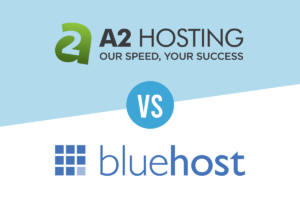Do you offer marketing services as an agency, consultancy, or even see yourself as doing so at a large in-house company?
Marketing is a game of balancing evergreen core values, beliefs, missions and strategies, with the new and ever-changing. The evergreen: Apple's user-centric product building. The new: Apple releasing the latest innovative products like AirPods, as well as testing new ad channels like X and Tik Tok.
New Marketing Service Ideas that Incorporate AI Tools
AI tools like ChatGPT and Midjourney have opened up new possibilities for augmenting creative and innovative services.
While you can use generative AI tools in the brainstorming phase of marketing service ideation & delivery, I don't think that it's the best to go direct to market with. You still need a strong human curation level.
Here are some new service ideas that incorporate these AI tools:
- AI-driven content creation and optimization: Utilize AI tools like ChatGPT to generate high-quality, keyword-rich content for blogs, social media, and web pages, which can be further optimized for SEO purposes.
- AI-powered customer support: Integrate ChatGPT into customer support systems to provide instant, accurate, and helpful responses to customer queries, reducing the workload on human support agents and improving customer satisfaction.
- AI-based competitor analysis: Employ AI tools to automatically analyze competitors' content, backlink profiles, and online presence, providing insights and recommendations for outperforming them in search rankings.
- AI-enhanced social media management: Use AI tools to generate engaging and relevant social media content, schedule posts, and analyze performance data to optimize social media strategies.
- AI-driven keyword research and analysis: Leverage AI to identify high-traffic and low-competition keywords, helping businesses target the most effective keywords for their niche.
- AI-powered sentiment analysis: Utilize AI tools like Midjourney to analyze customer reviews, social media comments, and other user-generated content to gain insights into customer sentiment and improve brand reputation management.
- AI-based personalization: Implement AI solutions to personalize web content, email marketing campaigns, and ad targeting based on user behavior, preferences, and demographics, increasing conversion rates and customer satisfaction.
- AI-assisted user experience (UX) optimization: Utilize AI to analyze user behavior data and provide insights on improving website navigation, layout, and design for enhanced user experience and increased conversions.
- AI-driven A/B testing: Implement AI to automate A/B testing for website design, ad campaigns, and content, providing data-driven insights on the most effective strategies.
- AI-enhanced SEO training and consulting: Offer AI-assisted SEO training courses and consulting services that leverage AI-generated insights and recommendations to help businesses improve their SEO strategies and stay ahead of the competition.
These AI-powered services can enhance traditional SEO and marketing practices by providing faster, more accurate, and data-driven insights and solutions, resulting in better decision-making and improved performance.
AI Tools Combined with SEO Services
Here is a list of 10 combined AI-powered SEO service ideas that incorporate new AI tools like ChatGPT and Midjourney alongside traditional SEO services:
1. AI-driven keyword research and analysis:
Leverage AI to identify high-traffic and low-competition keywords, helping businesses target the most effective keywords for their niche alongside traditional keyword research methods.
I have done this to generate the first batch, especially when I am in brainstorm mode. You should also specify in the prompt that you want linguistically similar terms, stronger NLP relation, close entities, and include “LSI keywords”. (LSI keywords isn't really a thing but it's helpful to give more ideas before continuing.)
No joke, I think LLMs help SEOs gain a new weapon more than any other class of careers on the market.
2. AI-enhanced on-page optimization:
Utilize AI tools like ChatGPT to generate and optimize elements such as title tags, meta descriptions, header tags, image alt tags, and internal linking, making content more search engine friendly.
3. AI-powered technical SEO:
Employ AI tools to automatically analyze and improve website speed, mobile-friendliness, secure HTTPS, proper URL structure, and crawlability for search engine bots, ensuring a solid technical foundation.
4. AI-driven content creation and optimization:
Use AI tools like ChatGPT to generate high-quality, keyword-rich content for blogs, social media, and web pages, which can be further optimized for SEO purposes and user engagement.
5. AI-assisted link building:
AI tools can help clean through large reams of data to find interesting link associations you might not otherwise find, as well as link opportunities.
6. AI-enhanced local SEO:
Utilize AI tools like ChatGPT's Advanced Data Analysis tool to analyze local search data and optimize your online presence for local search results, including Google My Business listings, local citations, and customer reviews.
7. AI-powered SEO audit and strategy development:
Analyze your website's current SEO status using AI tools and identify areas of improvement to develop a comprehensive and data-driven SEO strategy.
8. AI-based competitor analysis:
Leverage AI tools to automatically analyze competitors' SEO strategies, providing insights and recommendations for outperforming them in search results.
9. AI-enhanced reporting and analytics:
Track and analyze your website's SEO performance using AI-powered analytics tools to measure progress, adjust strategies as needed, and provide actionable insights.
10. AI-assisted SEO training and consulting:
Offer AI-enhanced SEO training courses and consulting services that leverage AI-generated insights and recommendations to help businesses improve their SEO efforts and stay ahead of the competition.
By incorporating AI tools like ChatGPT and Midjourney into traditional SEO services, businesses can benefit from faster, more accurate, and data-driven insights and solutions, resulting in better decision-making and improved performance.
AI-Augmented PR Services
I believe fairly strongly, that PR will be one of the lesser-impacted areas of PR because it is uniquely human. There's a constant game of competition of PR companies trying to outdo each other and catch the attention of journalists. So there's a strong human-competition element involved, and in a way it's not super scalable. The people are the bottlenecks.
I do think there are deployment strategies like programmatic and code-driven examples.
- Media relations and outreach: Media relations involve building relationships with journalists, bloggers, and influencers to secure coverage for your brand, products, or services. AI tools can help identify relevant media contacts, generate personalized pitches, and analyze the effectiveness of outreach campaigns to continuously improve results.
- Press release writing and distribution: Crafting and distributing press releases is a fundamental PR service. AI tools like ChatGPT can help create compelling press releases with optimized headlines and content. AI-driven distribution platforms can ensure that press releases reach the right journalists and media outlets, maximizing coverage and visibility.
- Influencer marketing: Collaborating with influencers can boost brand awareness, credibility, and engagement. AI tools can help identify influencers with the most relevant audiences, analyze their content and engagement metrics, and suggest potential partnership opportunities based on their audience demographics and interests.
- Crisis management: Handling negative situations and protecting brand reputation is crucial in PR. AI tools can monitor online sentiment, identify potential crises in real-time, and suggest appropriate responses or strategies to mitigate damage and maintain brand image.
- Social media management: Managing a brand's social media presence is essential for successful PR. AI tools can generate engaging and relevant content, schedule posts for optimal engagement, and analyze performance data to optimize social media strategies.
- Event management and promotion: Planning and promoting events, both online and offline, can generate buzz and media coverage. AI tools can assist in identifying relevant target audiences, suggesting event themes, and creating personalized promotional materials to maximize attendance and coverage.
- Content marketing and PR: Creating high-quality, engaging content is a powerful way to attract media attention and drive traffic to your website. AI tools like ChatGPT can generate blog posts, whitepapers, case studies, and other content that can be used in PR campaigns and optimized for search engines.
- Reputation management and monitoring: Tracking and managing a brand's online reputation is critical for PR success. AI tools like Midjourney can analyze customer reviews, social media comments, and other user-generated content to gain insights into customer sentiment, allowing businesses to address concerns and maintain a positive brand image.
- Media training and spokesperson preparation: Preparing company representatives for media interviews and public speaking engagements is an important PR service. AI tools can help analyze past interviews and speeches, providing insights and suggestions for improvement in delivery, message clarity, and body language.
- PR analytics and measurement: Measuring the success of PR efforts is crucial to ensure effective strategies and justify ROI. AI-powered analytics tools can track media coverage, social media engagement, and other key performance indicators, providing actionable insights for continuous improvement.
By combining AI tools with these popular PR services, businesses can benefit from faster, more accurate, and data-driven insights and solutions, resulting in better decision-making and improved PR performance.
And yes, this article was AI-assisted and edited by me :).
Update Log
- March 31, 2023: First version published
- December 27, 2023: Updated with new editorial review and context for clarifications.
Last Updated on December 27, 2023 by Joe




